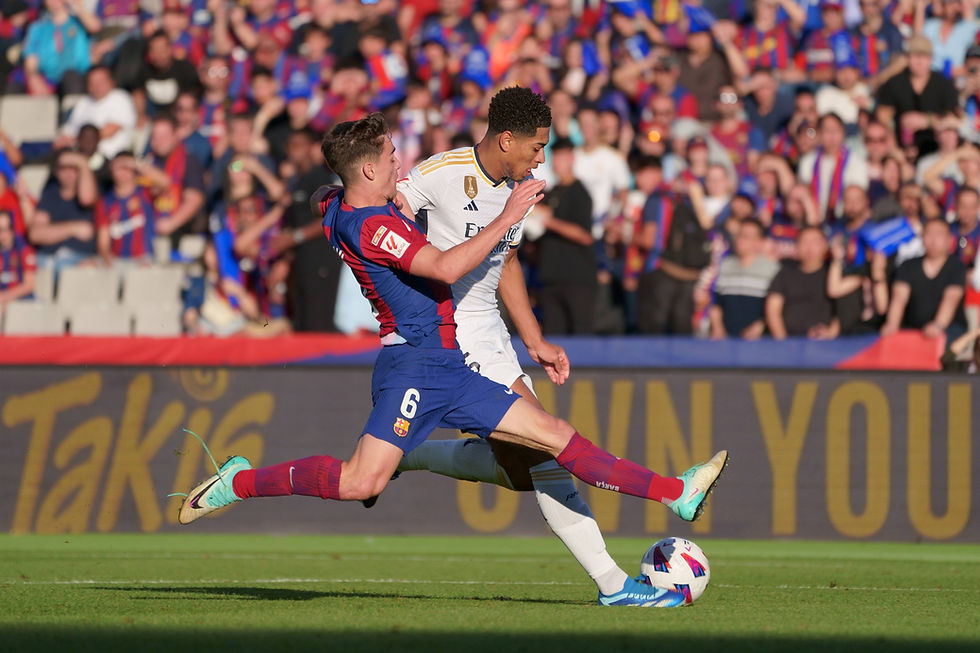USWNT’s Legal Saga Culminates In Historic Settlement But Leaves Some Questions Unanswered
- Julie Chambers

- Feb 25, 2022
- 3 min read
Updated: Jul 20, 2022
The United States Women’s National Soccer Team’s (USWNT) ongoing litigation over pay equity and unfair working conditions against the United States Soccer Federation (USSF) has been dominating headlines since the initial filing of the suit in March of 2019. On Tuesday, the USSF and the USWNT Players Association released a joint statement announcing settlement of the equal pay dispute.
US Soccer has agreed to a $24 million back payment, with current and former players involved in the case receiving $22 million and an additional $2 million allocated to benefit USWNT players in their post career goals and other charitable efforts related to the advancement of girl’s and women’s soccer. The sum is set to be paid over four years with the players to propose how the $22 million will be distributed among themselves and subject to final court approval.
The tenuous relationship between the women’s senior team and the Federation started long before the 2019 lawsuit. Allegations of inequality and gender discrimination date back to the 1990s when stars like Mia Hamm and Julie Foudy boycotted training camp prior to the 1996 Atlanta Olympics citing low pay and poor working conditions. In 2016, Alex Morgan, Carli Lloyd, Megan Rapinoe, Becky Sauerbrunn and Hope Solo filed a wage discrimination complaint with the Equal Employment Opportunity Commission alleging the USSF of paying the men’s senior team nearly four times more than the women’s team. The five athletes originally sought $66 million in damages under the Equal Pay Act.
The settlement is contingent upon the negotiation of a new collective bargaining agreement (CBA) between the parties before the current agreement’s March 31st expiration date. Upon ratification and court approval, the litigation will be resolved. The Federation has promised the agreement will provide equal pay for the men’s and women’s teams for all competitions, including friendlies, tournament appearances and World Cups. USSF president and former USWNT player Cindy Parlow Cone says the Federation is committed to moving towards one contract structure for both the men’s and women’s teams.
However, the USWNT and USMNT have separate unions, and as such, are under no legal obligation to bargain jointly or agree to identical terms. Additionally, there is great discrepancy between the men’s and women’s prior CBAs, with the men’s team operating under a pay-to-play structure and the women’s union negotiating for greater base salaries and additional benefits.
While this is touted as a moment to celebrate, described by USWNT Forward Alex Morgan as a “monumental step forward in feeling valued, feeling respected” and Cone as a “great transition moment,” there are still key issues to consider moving forward. UCLA law professor Steven Bank describes the settlement as a “nondeal deal” due its contingency on CBA approval that is reliant on several moving parts aligning prior to the March 31st deadline. He also expressed concern towards how this future CBA will define “equal pay” and emphasized that the key issue will be the FIFA World Cup prize money. Notably, the USSF still faces an individual equal pay suit filed against it in California by former USWNT goalkeeper Hope Solo. Solo blasted the announced settlement, calling it “heartbreaking and infuriating” because the contingency clause is centered around a CBA that “doesn’t exist yet and is not guaranteed.”
Regardless, the parties say they are now committed to moving forward. In an interview at halftime of the Thursday night SheBelieves Cup finale between the USWNT and Iceland, Cone said that the focus is now on repairing the damaged relationship between USWNT players and the Federation so they can concentrate on working together to advance women’s soccer. She said that they are dedicated to growing the game commercially while encouraging FIFA to equalize World Cup prize money. With the USSF’s March 5th Presidential election quickly approaching and Cone’s looming re-election bid, the settlement agreement gives her and the Federation some much needed breathing room and time to refocus on the upcoming World Cup and Olympic qualifiers.
References:
Julie Chambers is a 2L at New England Law, where she is President of the Entertainment and Sports Law Organization. She can be reached at LinkedIn at https://www.linkedin.com/in/julie-chambers-38a3401b8/.



